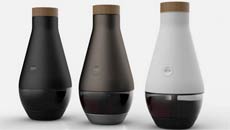Gender bias is real on Twitter. According to research, twitter conversations among men feature fewer mentions of women.
“In turn, there were more conversations between female Twitter users that contained references to men than conversations without a male reference,” revealed David Garcia, a researcher at the Chair of Systems Design at Swiss Federal Institute of Technology in Zurich, Switzerland.
To figure this out, the scientists used their algorithm to apply the Bechdel test to real-life conversations via social media platform Twitter.
The Bechdel Test, if you are not familiar with it, is a benchmark for movies developed by US cartoonist Alison Bechdel in 1985.
For a movie to pass The Bechdel Test, it must contain just one thing - a scene in which two or more named female characters have a conversation (that is, back and forth dialogue) about anything at all besides men.
In the study, researchers analysed roughly 300 million tweets like a gigantic movie script with 170,000 characters to compute an interaction network.
“I expected that on Twitter men would mention women in their conversations as often as women mentioned men," Garcia said.
The analysis revealed a different picture. Twitter conversations among men featured fewer mentions of women.
The researchers, however, did not find such a male bias in all Twitter users.
The conversations of students proved to be more balanced regarding references to the respective other gender.
In contrast, the tweets of fathers were even more male-biased: they interacted even less with female users and mentioned women even less often than childless men.
“It appears that Twitter is more male-biased," Garcia noted.
Garcia’s algorithm could serve as a tool not only to rate movies in which one of the genders is underrepresented, but also to analyse the design of social networks.





